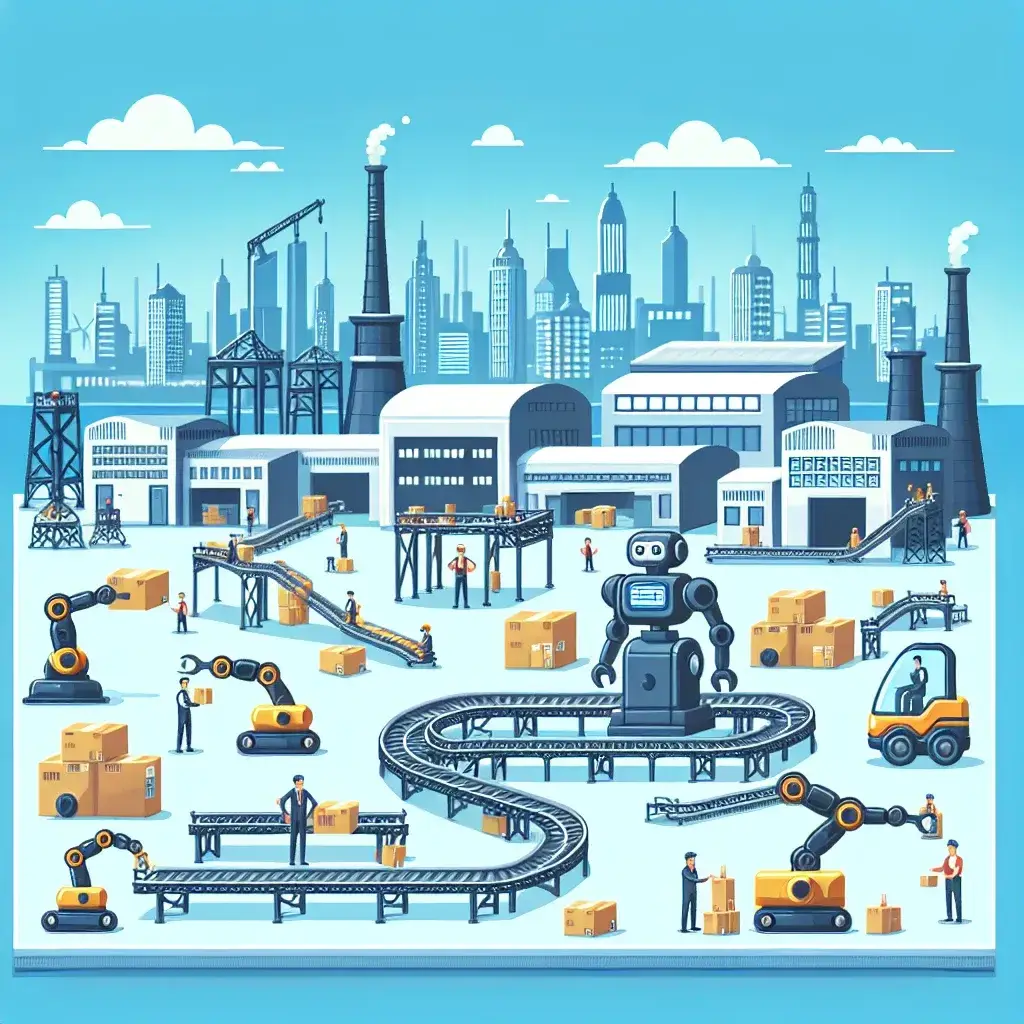Understanding Educational Data Scraping in the Digital Learning Era
The exponential growth of online education has created an unprecedented wealth of course data across various educational platforms. From massive open online courses (MOOCs) to specialized training programs, educational institutions and learners alike are increasingly recognizing the value of systematically collecting and analyzing this information. Educational data scraping has emerged as a powerful technique for gathering comprehensive course information, enabling better decision-making for students, researchers, and educational organizations.
Educational platforms like Coursera, edX, Udemy, Khan Academy, and countless others host millions of courses covering virtually every subject imaginable. This vast repository of educational content represents a goldmine of insights for various stakeholders, including prospective students seeking the best learning opportunities, researchers analyzing educational trends, and institutions looking to improve their offerings.
The Strategic Importance of Course Data Collection
In today’s competitive educational landscape, access to comprehensive course data provides significant advantages. Educational consultants use this information to guide students toward the most suitable programs, while market researchers analyze trends to predict future educational demands. Data-driven decision making has become essential for educational success, whether you’re an individual learner or an institutional administrator.
Course data encompasses various elements including course titles, descriptions, instructor information, pricing, enrollment numbers, ratings, reviews, curriculum details, and completion rates. This multifaceted information provides valuable insights into educational quality, market demand, and learning effectiveness. By systematically collecting this data, stakeholders can identify patterns, compare offerings, and make informed choices about educational investments.
Primary Applications of Educational Data Scraping
- Market Research: Understanding competitive landscapes and identifying emerging educational trends
- Price Comparison: Analyzing course pricing across different platforms to find the best value
- Quality Assessment: Evaluating course ratings and reviews to determine educational effectiveness
- Curriculum Analysis: Comparing course content and structure across institutions
- Academic Research: Studying educational patterns and learning outcomes
- Student Guidance: Helping learners find courses that match their specific needs and goals
Technical Approaches to Educational Platform Scraping
Successful educational data extraction requires a comprehensive understanding of various technical methodologies. The choice of approach depends on factors such as the target platform’s structure, the volume of data required, and the frequency of updates needed.
Web Scraping Fundamentals
HTML parsing forms the foundation of most educational data scraping operations. Educational platforms typically structure their course information using standardized HTML elements, making it possible to systematically extract relevant data points. Modern scraping tools can navigate complex website structures, handle dynamic content loading, and manage authentication requirements.
Python has emerged as the preferred programming language for educational data scraping, primarily due to its extensive library ecosystem. Libraries such as BeautifulSoup for HTML parsing, Scrapy for large-scale scraping operations, and Selenium for handling JavaScript-heavy platforms provide robust solutions for various scraping challenges.
API-Based Data Collection
Many educational platforms offer Application Programming Interfaces (APIs) that provide structured access to course data. API-based collection represents the most ethical and reliable method for obtaining educational information, as it operates within the platform’s intended usage framework. APIs typically provide JSON or XML formatted data, making it easier to process and integrate into analytical systems.
Popular educational platforms like Coursera, edX, and Khan Academy offer varying levels of API access, though some require approval or partnership agreements for comprehensive data access. These APIs often include rate limiting and authentication mechanisms to ensure responsible usage.
Navigating Legal and Ethical Considerations
The legal landscape surrounding educational data scraping presents complex challenges that require careful consideration. Intellectual property rights, terms of service agreements, and privacy regulations create a framework within which scraping activities must operate.
Terms of Service Compliance
Educational platforms typically include specific clauses in their terms of service regarding automated data collection. These agreements may explicitly prohibit scraping activities or establish specific guidelines for acceptable use. Violating these terms can result in account suspension, legal action, or technical countermeasures that block access.
Before initiating any scraping project, thorough review of the target platform’s terms of service is essential. Some platforms may allow limited scraping for research purposes while prohibiting commercial use, while others may completely forbid automated data collection.
Privacy and Data Protection
Educational platforms often contain personal information about instructors and students, making privacy protection a critical consideration. Data protection regulations such as GDPR in Europe and CCPA in California establish strict requirements for handling personal information, even when obtained through public interfaces.
Responsible scraping practices include avoiding collection of personally identifiable information, implementing data anonymization techniques, and ensuring secure storage of collected information. Educational researchers must also consider institutional review board (IRB) requirements when collecting data for academic purposes.
Advanced Scraping Techniques and Tools
Modern educational platforms employ sophisticated technologies that require advanced scraping techniques. Single-page applications (SPAs) built with frameworks like React or Angular present unique challenges, as course content may be loaded dynamically through JavaScript rather than being present in the initial HTML.
Handling Dynamic Content
Headless browser automation has become essential for scraping JavaScript-heavy educational platforms. Tools like Selenium WebDriver, Playwright, and Puppeteer can interact with web pages as a human user would, executing JavaScript and waiting for dynamic content to load before extracting data.
These tools can handle complex interactions such as clicking through course categories, scrolling to load additional content, and navigating multi-step enrollment processes. However, they require more computational resources and are generally slower than traditional HTML parsing methods.
Anti-Scraping Countermeasures
Educational platforms increasingly implement anti-scraping measures to protect their data and ensure optimal user experience. These countermeasures may include rate limiting, CAPTCHA challenges, IP blocking, and sophisticated bot detection algorithms.
Successful scraping operations must employ techniques such as request throttling, user agent rotation, proxy usage, and session management to avoid detection. Respectful scraping practices that minimize server load and mimic human browsing patterns are essential for long-term success.
Data Processing and Analysis Strategies
Raw scraped data from educational platforms typically requires significant processing before it becomes useful for analysis. Course descriptions may contain inconsistent formatting, pricing information might be displayed in various currencies, and instructor credentials could be presented in different formats across platforms.
Data Standardization and Cleaning
Data normalization processes ensure consistency across different educational platforms. This involves standardizing course categories, converting pricing to common currencies, extracting structured information from free-text descriptions, and resolving duplicate or near-duplicate courses.
Natural language processing techniques can extract key information from course descriptions, such as learning objectives, prerequisite requirements, and target skill levels. Machine learning algorithms can categorize courses, predict enrollment success, and identify trending topics in online education.
Quality Assurance and Validation
Scraped educational data requires rigorous quality assurance to ensure accuracy and completeness. Automated validation rules can identify missing information, detect formatting inconsistencies, and flag potentially erroneous data points. Regular monitoring ensures that scraping processes continue to function correctly as educational platforms evolve.
Emerging Trends and Future Considerations
The educational technology landscape continues to evolve rapidly, presenting new opportunities and challenges for data collection. Artificial intelligence integration in educational platforms is creating new types of data, including personalized learning paths, adaptive assessment results, and AI-generated content recommendations.
Blockchain-based credentialing systems and decentralized educational platforms may require new approaches to data collection and verification. As educational content becomes increasingly personalized and dynamic, traditional scraping methods may need to adapt to handle more complex, user-specific information.
Microlearning and Skill-Based Education
The shift toward microlearning and skill-based education is fragmenting course data across multiple platforms and formats. Comprehensive data collection now requires aggregating information from traditional course platforms, professional certification programs, corporate training systems, and emerging skill assessment platforms.
This trend toward specialization creates opportunities for more targeted data collection strategies that focus on specific industries, skill sets, or learning modalities. Educational data scraping must evolve to capture the nuanced relationships between different types of learning experiences and their real-world applications.
Best Practices for Sustainable Educational Data Collection
Successful long-term educational data scraping requires adopting sustainable practices that balance data collection needs with respect for platform resources and user privacy. Ethical scraping frameworks should guide all data collection activities, ensuring that scraping operations contribute positively to the educational ecosystem.
Building Collaborative Relationships
Rather than viewing educational platforms as adversaries, successful data collectors often seek collaborative relationships with platform operators. Many educational institutions and platforms are willing to share data for legitimate research purposes or mutually beneficial partnerships.
Academic researchers can often obtain access to anonymized datasets through formal research agreements, while commercial organizations might explore data licensing opportunities. These collaborative approaches typically provide higher quality data while reducing legal and technical risks.
Technology and Infrastructure Considerations
Robust educational data scraping operations require careful attention to technical infrastructure. Scalable architectures must handle varying data volumes, accommodate different platform requirements, and provide reliable data storage and processing capabilities.
Cloud-based solutions offer advantages in terms of scalability and geographic distribution, allowing scraping operations to adapt to changing requirements and minimize the impact on target platforms. Proper monitoring and alerting systems ensure that scraping operations continue to function effectively as educational platforms evolve.
Conclusion: The Future of Educational Data Intelligence
Educational platform scraping represents a powerful tool for understanding and improving online learning experiences. As the digital education landscape continues to expand and evolve, the ability to systematically collect and analyze course data becomes increasingly valuable for all stakeholders in the educational ecosystem.
Success in this field requires balancing technical expertise with ethical considerations, legal compliance, and respect for the educational community. By adopting responsible scraping practices and focusing on collaborative approaches, data collectors can contribute to the advancement of educational quality while building sustainable, long-term data collection capabilities.
The future of educational data intelligence lies in developing more sophisticated, ethical, and collaborative approaches to information gathering. As educational platforms become more complex and personalized, the techniques and tools for data collection must evolve accordingly, always keeping the ultimate goal of improving educational outcomes at the forefront of all activities.




